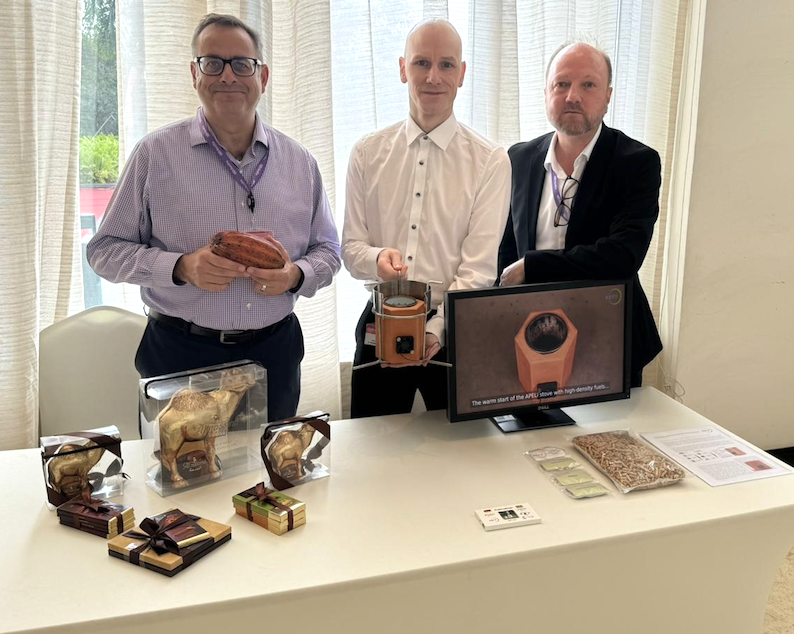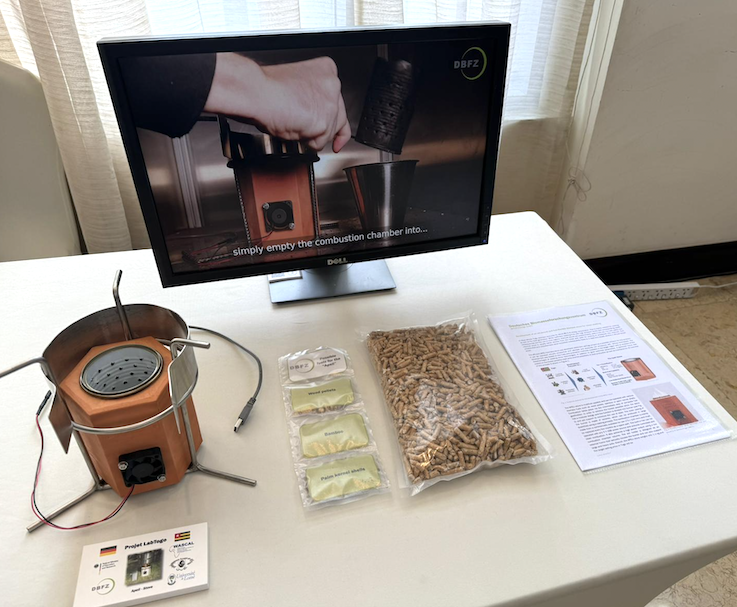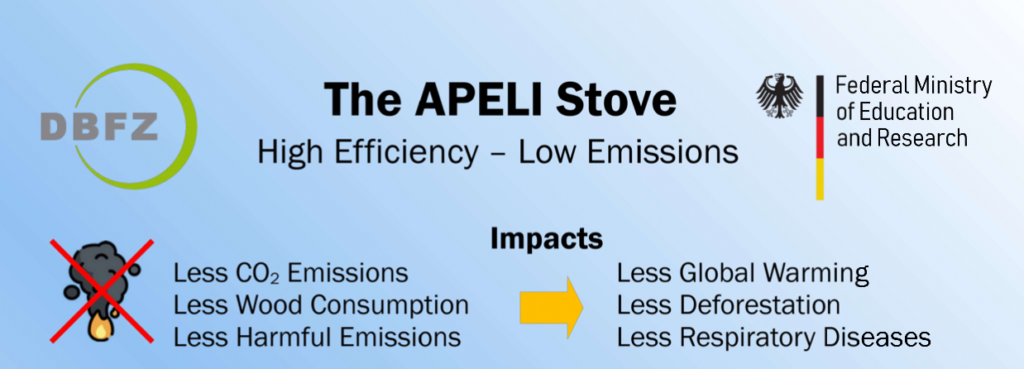Confectionery brands led by UAE company Al Nassma are lending support to ground-breaking technology that is enabling cocoa farmers in West Africa to operate more efficiently and sustainably.
The APELI stove enables the use of existing residual materials instead of wood or charcoal for cooking. Its high efficiency enables wood savings of at least 80% compared to currently used cooking technologies with a big reduction in emissions.
Users such as cocoa farmers have to buy less fuel and benefit from virtually smoke-free and odourless operations. It also means fewer trees need to be felled for fuel production.

The solution was developed in a LabTogo project funded by the German Ministry of Research and Education to minimise the use of wood, using Togo as an example. It was presented to industry participants at the Middle East & Africa Duty Free Association (MEADFA) Conference in November, through a showcase supported by Al Nassma.
Representing the German Research Center for Biomass (DBFZ), Dr. Dennis Krüger said: “MEADFA offered us as scientists a very interesting platform to present our results to relevant companies operating in West Africa and to jointly initiate sustainable change in the future together.”
The DBFZ project focused on ensuring that the APELI stove could be manufactured locally in a sustainable manner and offered at a retail price of no more than US$10 to allow for mass production.
For a small country such as Togo, replacing just 5% of charcoal stoves with APELI stoves would mean a reduction in CO2 emissions of about 170,000 tons . This corresponds to the amount of CO2 that eight million trees can absorb per year.

In a follow-up project, the entire production chain for the APELI stove is to be demonstrated in the field – including local stove production, distribution and maintenance as well as fuel production for various target groups. In Togo, this is taking place in cooperation with Al Nassma.
Local cocoa farmers will be first to have access to the developed technology and will be able to significantly minimise both their fuel consumption and their emissions, noted DBFZ.
Al Nassma General Manager Martin von Almsick said: “Unfortunately, the confectionery industry has an undeniable responsibility for large parts of the deforestation that has happened over the past decades in West-Africa.
“The Apeli biomass stove project is a strikingly efficient way to fight further deforestation and a very tangible way to make a difference for the better. We are very happy to support this project of DBFZ further to really start a significant change for the people of the cocoa-growing regions in Africa and beyond.”

Al Nassma Director of Sales Patrick Dorais added: “Trying to do the right thing by being a part of the solution, and not the problem, is the primary motivation for taking a sponsorship package during the MEADFA Conference in Ghana – majority producer of cocoa beans worldwide – and providing DBFZ a platform within which their cooker innovation could be shown to delegates in the travel retail industry.
“Be it other chocolate producers who can integrate this into their sustainability programmes or even travel retail operators who could see an interest in selling this at cost within their outlets, we were definitely pleased with the reception it received and are pleased that it caught the attention of at least one major confectionery player at the event.”
Other brands said this was a positive initiative funded by the German government.
Lindt & Sprüngli Head of Global Travel Retail Peter Zehnder said that the company will evaluate if APELI stove could present “a solution for the Lindt Farming programme to reduce CO2 emissions”.
Background
According to DBFZ, in Togo, biomass accounts for 80% of energy consumption, mainly for cooking and heat generation. Every year, around 16,000 hectares of forest are cleared to grow crops such as maize or cocoa or to produce charcoal for cooking.
This leads to a reduction in forest area, which in most cases are not being reforested.
DBFZ notes that there is risk that the fuel supply for the population could collapse in the medium term in individual West African countries with limited forest resources, such as Togo.
For poorer sections of the population, it is not possible to switch to more expensive fuels such as LPG, noted the German government-supported body. ✈












